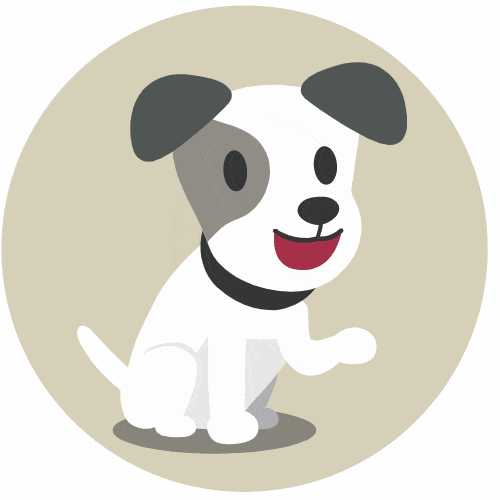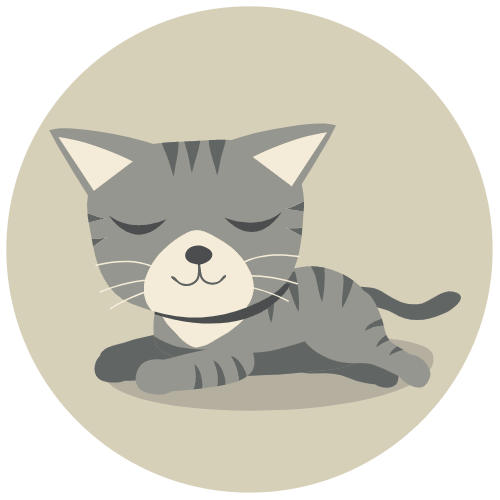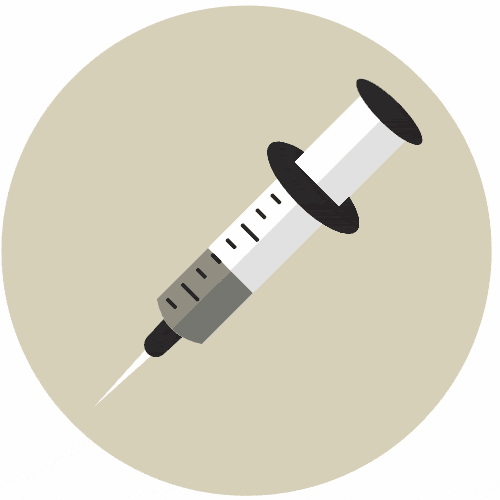Congratulations on bringing home your furry bundle of joy! Puppies and kittens are a delight to care for, and seeing them grow up happy and healthy is extremely fulfilling. As your veterinarian, Woodland Animal Hospital recommends seeing your new pet for a series of four exams, 3-4 weeks apart, to give them the best start in their life with you! We will also work with you to make sure your puppy or kitten is growing and developing as they should, with strong immunity against viral diseases and a balanced, nutritious diet appropriate for their age group.
Why We Recommend a Series of Puppy/Kitten Exams
Your new puppy or kitten needs to see us for a series of exams so we can establish their care and help you build an ongoing plan for their future health. Additionally, visiting the vet is a prime opportunity to introduce your pet to new sights, sounds, and experiences. Follow-up exams allow us to monitor your pet’s growth and progress, and make sure they are free of any parasites or other diseases.
What is Included with Your Pet’s First Exams?
First Appointment
The first exam appointment can happen as early as 6-8 weeks old for your pet, but this varies, since pets get adopted at a wide range of ages. If your pet is under a year old, this first appointment will still count as their “first” exam. We ask that you bring in a fresh stool sample to your first appointment, so we can perform fecal testing to check for intestinal parasites. We can also get your pet started on appropriate parasite prevention and administer necessary vaccinations.
Puppy Vaccines
- 1st DA2PP booster (Distemper, Adenovirus, Parvovirus, and Parainfluenza)
- Deworming
Kitten Vaccines
- 1st FVRCP booster (Feline Viral Rhinotracheitis, Calicivirus, Panleukopenia)
- Deworming
Follow Up Appointments
As your pet grows, we will schedule follow up appointments every 3-4 weeks to continue to track their health and administer vaccinations based on your puppy or kitten’s age. There are vaccines we recommend as core vaccines for all pets, and non-core vaccines based on each pet’s lifestyle. The following vaccinations will be administered or boosted during future appointments:
Core Vaccinations
- Distemper
- Rabies
- Parvovirus
- FELV
- FVRCP
Non-Core Vaccinations
- Bordetella
- Canine influenza
- Lyme
- Leptospirosis
Why We Spay & Neuter
It’s important to schedule your pet’s spay or neuter surgery date at the right time. Their breed, size, age, and lifestyle all play a role in deciding the best timeline for spaying and neutering. We need to make sure your pet finishes growing, but we also want to minimize their risk for reproductive cancers and other diseases.
How do I schedule my pet’s potty training?
- Take them out first thing in the morning
- Take them out again last thing at night, before going to bed
- After your puppy has spent time in their crate, let them out for a potty break
- Take your puppy out after they have a nap, and after eating and/or drinking
- Time between your puppy’s potty breaks should not exceed 2-4 hours
How to crate train your puppy
- Dogs prefer a clean living space and are less likely to have accidents if you keep their environment tidy
- Put your puppy’s crate close to an exterior door, so they can get quick relief if they need to go out
- Your puppy’s crate should be large enough for them to stand up and move around in
When’s the best time to reinforce good behaviors?
- Never scold or yell at your puppy if they have an accident in the house
- Praise them when they do the right thing
- When you reward your puppy, you can do so with attention, pats, and a treat
How to Stop Your Puppy from Engaging in Bad Behaviors
Is it OK for my puppy to chew? What should they chew on?
- Puppies (and adult dogs) love to chew—it’s calming for them!
- Purchase some pet-safe chew toys and keep them in different areas of the house so your puppy has something to chew on that does not include your furniture or other household items
Is there a way to stop my puppy from barking?
- If your puppy starts barking, don’t scold them—that could make them bark even more! Try to ignore the barking and praise your puppy when they get quiet
- Train your puppy how to sit; this could curb their desire to bark
My puppy is begging at the table – how do I stop them?
- Try feeding your puppy first, before you and your family sit down to eat
- Make a comfy, cozy spot within sight of the table for your puppy to go to
- Praise your puppy whenever they don’t beg
Tips for Feeding Your Puppy
How often does my puppy need to be fed?
- 6-12 weeks old: 4 times daily
- 3-6 months old: 3 times daily
- 6-12 months old: 2 times daily
- 1 year old and up: 2 half portions daily
- Also, watch your puppy to gauge if they’re eating healthy
What should I be feeding my puppy?
- Review AAFCO guidelines for nutritional information
- Select age-appropriate food that is also formulated for your pet’s specific health needs
- Always speak with your vet to get a tailored food recommendation for your puppy
What human foods are harmful to puppies?
- Chocolate (any type)
- Grapes/raisins
- Sugary, fatty foods
- Onions and garlic
- Desserts
What items should I get for my kitten?
- Scratching posts to preserve your furniture
- A cat tree to encourage climbing and enrichment
- The proper number of litter boxes (the more kittens/cats you have, the more litter boxes you need)
- A quality cat carrier
- Food and water bowls (stainless steel or ceramic are best)
- Odor and stain remover
Is there anything I should remove for my kitten’s safety?
- Remove toxic plants (lilies, sago palm, etc.)
- Potentially toxic sprays and other cleaners
- Keep dog food stored away from your cat (if you have a dog)
Items to keep your kitten comfortable
- A soft bed and blanket
- Small, cozy spaces (covered beds are good places for your kitten to hide)
- Grooming items (brush, nail clippers, tooth brush)
- Artificial feline pheromone product to help your kitten feel calmer
Tips on Playing with Your Kitten
How to play safely
- Avoid playing with your kitten using your hands; you might encourage them to nip
- Give your kitten balls to play with that are too large to be a choking hazard, along with jingle toys, small plush toys, or anything on a string
Why is it important to play with my kitten?
- Kittens need to burn off energy they might otherwise use to scratch furniture, knock things over, and possibly cause damage
- Playing with your kitten strengthens the bond you share
- Playtime helps your kitten grow more comfortable and confident in your home
How frequently should I play with my kitten?
- You should play with your kitten at least twice each day, ideally in the morning and in the evening
- Playtime sessions should be at least 20 minutes each
How Should I Feed My Kitten?
How often your kitten needs to be fed
- If it’s dry food only, you can have it available to your kitten (in reasonable quantities; you don’t want to overfeed) throughout the day
- If your cat is on wet food only, they should be fed at least 4 times daily
- A combination wet/dry diet should involve wet food given twice daily, and dry food being available throughout the day
What kind of food should I give my kitten?
- See AAFCO guidelines for nutritional information
- Choose an age-specific and health-specific formula
- Talk to your veterinarian for the best recommendations
Which foods are most harmful to kittens?
- Chocolate (any kind)
- Dairy
- Raw meats
- Eggs
- Raw fish





